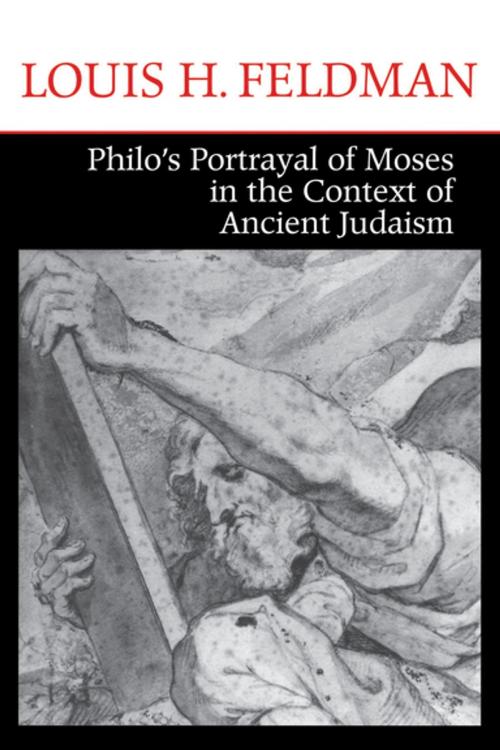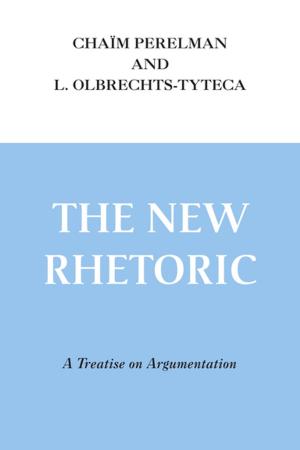Philo's Portrayal of Moses in the Context of Ancient Judaism
Nonfiction, Religion & Spirituality, Judaism, History, Bible & Bible Studies, Study, Old Testament| Author: | Louis H. Feldman | ISBN: | 9780268159528 |
| Publisher: | University of Notre Dame Press | Publication: | January 17, 2008 |
| Imprint: | University of Notre Dame Press | Language: | English |
| Author: | Louis H. Feldman |
| ISBN: | 9780268159528 |
| Publisher: | University of Notre Dame Press |
| Publication: | January 17, 2008 |
| Imprint: | University of Notre Dame Press |
| Language: | English |
Philo's Portrayal of Moses in the Context of Ancient Judaism presents the most comprehensive study of Philo's De Vita Mosis that exists in any language. Feldman, well known for his work on Josephus and ancient Judaism, here paves new ground using rabbinic material with philological precision to illuminate important parallels and differences between Philo's writing on Moses and rabbinic literature. One way in which Hellenistic culture marginalized Judaism was by exposing the apparent defects in Moses' life and character. Philo's De Vita Mosis is a counterattack to these charges and is a vital piece of his attempt to reconcile Judaism and Hellenism. Feldman rigorously examines the text and shows how Philo presents a narrative of Moses's life similar to that of a mythical divine and heroic figure, glorifying his birth, education, and virtues. Feldman demonstrates that Philo is careful to explain in a scientific way those portions of the Bible, particularly miracles, that appear incredible to his skeptical Hellenistic readers. Through Feldman's careful analysis, Moses emerges as unique among ancient lawgivers.
Philo's Portrayal of Moses in the Context of Ancient Judaism mirrors the organization of Philo's biography of Moses, which is in two books, the first, in the style of Plutarch, proceeding chronologically, and the second, in the style of Suetonius, arranged topically. Following an introductory chapter, Feldman's study discusses the life of Moses chronologically in the second chapter and examines his virtues topically in the third. Feldman compares the particular features of Philo's portrait of Moses with the way in which Moses is viewed both by Jewish sources in antiquity (including Pseudo-Philo; Josephus; Graeco-Jewish historians, poets, and philosophers; and in the Apocrypha, Pseudepigrapha, Samaritan tradition, Dead Sea Scrolls, and rabbinic tradition) and by non-Jewish sources, notably the Greek and Roman writers who mention him.
Philo's Portrayal of Moses in the Context of Ancient Judaism presents the most comprehensive study of Philo's De Vita Mosis that exists in any language. Feldman, well known for his work on Josephus and ancient Judaism, here paves new ground using rabbinic material with philological precision to illuminate important parallels and differences between Philo's writing on Moses and rabbinic literature. One way in which Hellenistic culture marginalized Judaism was by exposing the apparent defects in Moses' life and character. Philo's De Vita Mosis is a counterattack to these charges and is a vital piece of his attempt to reconcile Judaism and Hellenism. Feldman rigorously examines the text and shows how Philo presents a narrative of Moses's life similar to that of a mythical divine and heroic figure, glorifying his birth, education, and virtues. Feldman demonstrates that Philo is careful to explain in a scientific way those portions of the Bible, particularly miracles, that appear incredible to his skeptical Hellenistic readers. Through Feldman's careful analysis, Moses emerges as unique among ancient lawgivers.
Philo's Portrayal of Moses in the Context of Ancient Judaism mirrors the organization of Philo's biography of Moses, which is in two books, the first, in the style of Plutarch, proceeding chronologically, and the second, in the style of Suetonius, arranged topically. Following an introductory chapter, Feldman's study discusses the life of Moses chronologically in the second chapter and examines his virtues topically in the third. Feldman compares the particular features of Philo's portrait of Moses with the way in which Moses is viewed both by Jewish sources in antiquity (including Pseudo-Philo; Josephus; Graeco-Jewish historians, poets, and philosophers; and in the Apocrypha, Pseudepigrapha, Samaritan tradition, Dead Sea Scrolls, and rabbinic tradition) and by non-Jewish sources, notably the Greek and Roman writers who mention him.















